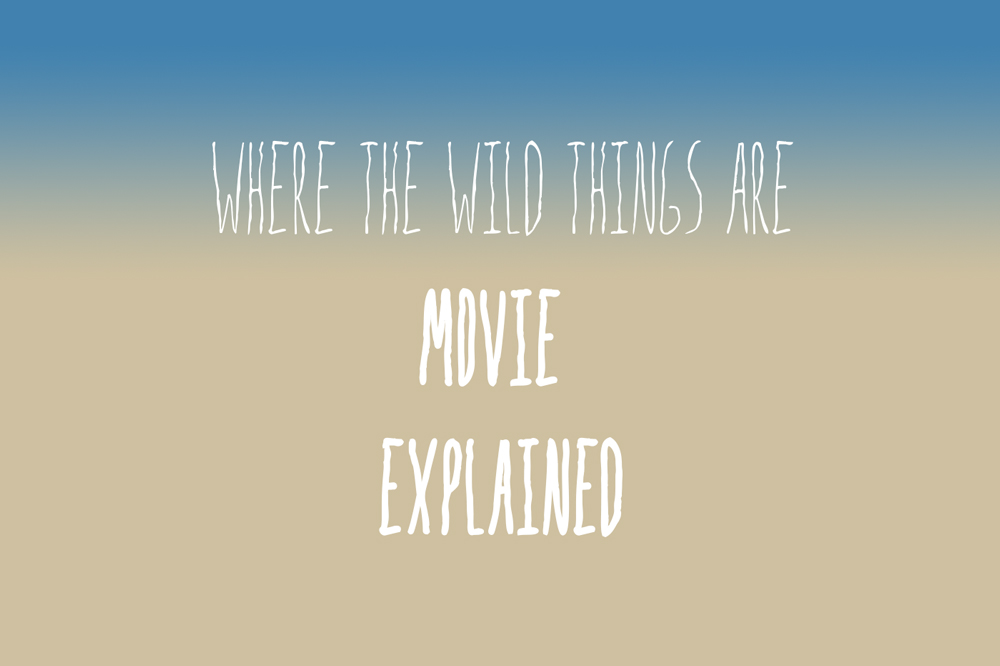My 7-year-old stepson recently chose the 2009 movie Where the Wild Things Are as his pick for movie night.
As a child, I loved the book Where the Wild Things Are. I’d have my mother read me it most every week.
The film is a great film in it’s own right. It’s different. It’s sad and heavy. But it’s also beautiful.
This time around while watching the film, I started wondering what it is actually supposed to be about. I have my ideas – but let me start with some basics here.
There’s an article by David Cox over at The Guardian that points out a couple critical things to understand about the movie:
1. The movie is for adults
First, the movie is not really made for children. It’s for adults.
That’s not to say that kids won’t necessarily like the film. My 7-year-old loves it. On the other hand, the 9-year-old is terrified by it.
2. The movie is about the crazy way adults behave
Second, the subject matter of the movie has less to do with children than with adults, and the crazy ways in which they behave.
The second point above is important, because Max’s make-believe world is painted and defined by his own childhood psychology. He’s trying to understand and deal with the messiness of the adults in his life – because those are the psychological archetypes of Max’s reality.
Max is coming to terms with his parents’ divorce
I think a large part of what Max is dealing with is coming to terms with his parents’ divorce. More specifically, he’s dealing with the world and his perception of it after the divorce.
This idea hasn’t really been talked about much online (and I could be totally off-base with all this), but here’s some of my thinking on it:
Carol
Carol largely assumes the role of Max’s father. While Max’s father is never seen on screen, we can pull from Carol’s behavior what he is like: lovable, creative and artistic – but also pointlessly destructive and violent.
We see some of those tendencies in Max as well. I imagine Max’s father is an alcoholic or drug addict, prone to not only self-destruction, but the harm of those around him.
KW
KW is largely the projection of Max’s mother.
While she loves Carol, she’s tired and weary of his behavior, and has moved out. She apparently has two new friends now (Bob and Terry).
Douglas
Douglas shows extreme loyalty and friendship to Carol. He’s clear-thinking and calm, trying at one point to reason with an outraged Carol that Max is “just a boy, pretending to be a wolf, pretending to be a king”.
Carol’s response to this is to rip his friend’s right arm off. My best guess here is that this is another off-screen adult – a friend of Max’s father, a brother, or maybe even a therapist or AA sponsor.
Alexander
Alexander is shy, small, and feels disregarded and ignored.
I understood this to be a projection of Max himself.
Judith
Judith is the aggressive, mean girlfriend of Ira (the friendly one with the big nose), who is himself a nice, gentle, loving boyfriend in love.
Analogs in Max’s real world for these characters are not 1:1 or even obvious. I can imagine them being Max’s sister (who earlier in the film ignores Max when he is crying because they dogpiled him while he was in his snow fort) and her boyfriend (who stops to ask Max if he is okay after this).
If this is not where Max drew the inspiration for these characters, they’re clearly archetypes of people most of us know in our own lives – and we can imagine Max knowing such individuals – somewhere.
Bernard
Bernard the Bull is the stoic and solipsistic wild thing that Max finds intimidating. Perhaps this is an analogue of Max’s mother’s new boyfriend, or maybe his teacher at the school (who tells Max that one day the sun will burn out).
The analogs certainly aren’t perfect here. But again, neither are the adults, neither is Max, and neither is Max’ understanding of those adults. The point is, you can see how Max’s understanding of the world and those around him have created the characters that inhabit Where the Wild Things Are.
At the end of the movie, my 7-year-old stepson said “I feel sad for Carol”. I explained to him what I thought was going on in the movie, and he thought maybe I was right.
T.H.I.N.K. Post Eval:
True
Helpful
Inspiring
Necessary
Kind




